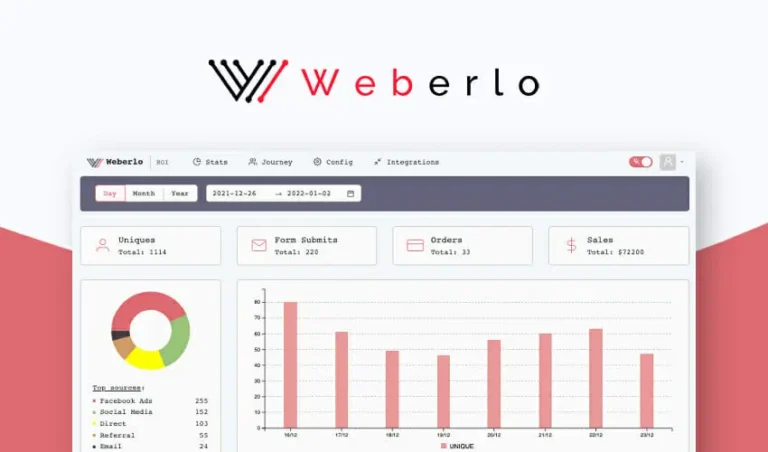Build a Real Estate Website: A Comprehensive Guide
In today’s digital landscape, building a real estate website is no longer optional—it’s essential. Whether you’re an individual real estate agent or a large agency, having a professional and functional website can make or break your business. In this comprehensive guide, we will walk you through the steps to build a real estate website that not only stands out but also drives traffic, generates leads, and ultimately boosts your revenue.
Understanding the Importance of a Real Estate Website
The real estate market is highly competitive, and potential clients increasingly turn to the internet to search for properties, compare prices, and find agents. A well-designed real estate website offers the opportunity to showcase your listings, provide valuable information to your clients, and establish your brand as a trusted authority in the industry. By building a website that is both user-friendly and optimized for search engines, you can significantly enhance your online visibility and attract more qualified leads.
Key Features of a Successful Real Estate Website
1. Mobile-Friendly Design
In an age where more than 50% of web traffic comes from mobile devices, it’s crucial that your real estate website is fully responsive. A mobile-friendly design ensures that your website looks great and functions well on all devices, from smartphones to tablets to desktop computers. This not only improves user experience but also positively impacts your site’s ranking on search engines like Google. If you want to read more interesting topics please visit:- Media One News Live
2. Integrated MLS Listings
Multiple Listing Service (MLS) integration is a must-have feature for any real estate website. This allows you to automatically display the latest property listings directly on your site. By integrating MLS, you provide visitors with real-time data on available properties, making your website a one-stop-shop for all their real estate needs.
3. Advanced Search Functionality
Your website should offer advanced search functionality that allows users to filter listings based on criteria such as location, price range, property type, number of bedrooms, and more. This helps users quickly find properties that match their specific needs, improving their overall experience and increasing the likelihood that they will contact you for more information.
4. High-Quality Visual Content
In the real estate industry, visual content is king. High-resolution images, virtual tours, and videos of your listings are essential for capturing the attention of potential buyers. Ensure that your website is optimized to display these visuals without compromising loading speed. Remember, a picture is worth a thousand words, especially when it comes to selling properties.
5. Easy-to-Use Content Management System (CMS)
A user-friendly Content Management System (CMS) is critical for managing your real estate website. A good CMS allows you to easily update your site with new listings, blog posts, and other content without needing advanced technical skills. Popular CMS platforms like WordPress offer a variety of real estate-specific themes and plugins that make managing your site a breeze.
6. Lead Capture Forms
Your real estate website should include lead capture forms strategically placed on high-traffic pages. These forms allow visitors to sign up for newsletters, request property information, or schedule viewings, providing you with valuable contact information for follow-up. The more leads you capture, the better your chances of closing deals.
7. Testimonials and Reviews
Displaying testimonials and reviews from satisfied clients is an excellent way to build trust with potential clients. Positive reviews can significantly influence the decision-making process of your website visitors, making them more likely to choose you as their real estate agent. Having a real estate CRM in place ensures you can easily collect and manage these reviews, allowing you to showcase them effectively on your website to attract more leads.
Step-by-Step Guide to Building a Real Estate Website
1. Choose the Right Domain Name
Your domain name is your online identity, so choose it wisely. Ideally, it should be short, memorable, and related to real estate. If possible, include keywords like “real estate,” “homes,” or your location in the domain name to improve SEO. For example, if you’re based in Miami, a domain like “MiamiHomes.com” would be highly effective.
2. Select a Reliable Web Hosting Provider
A reliable web hosting provider is crucial for ensuring that your website is always up and running. Look for a hosting provider that offers fast loading times, excellent customer support, and a high level of security. Shared hosting might be sufficient for small real estate websites, but if you expect high traffic, consider a VPS or dedicated server.
3. Install a Content Management System (CMS)
As mentioned earlier, a Content Management System (CMS) like WordPress is ideal for building a real estate website. WordPress is user-friendly, highly customizable, and offers a wide range of plugins and themes tailored specifically for real estate professionals. Once you’ve selected your CMS, install it on your web server and choose a theme that aligns with your brand.
4. Customize Your Website Design
The design of your website plays a crucial role in how visitors perceive your brand. Choose a clean, modern design that reflects the professionalism of your real estate business. Ensure that the design is responsive, easy to navigate, and optimized for both desktop and mobile devices. Use your brand’s color scheme and logo consistently throughout the site to reinforce your brand identity.
5. Implement Essential Plugins and Tools
To enhance the functionality of your website, consider installing essential plugins and tools. For a real estate website, these might include:
- Real Estate Listing Plugins: These allow you to easily add and manage property listings on your site.
- SEO Plugins: Tools like Yoast SEO can help you optimize your content for search engines.
- Contact Form Plugins: Plugins like Contact Form 7 make it easy to create lead capture forms.
- Social Media Integration: Integrate your social media profiles to share content and engage with your audience.
6. Add and Optimize Your Content
Content is king when it comes to SEO. Start by creating high-quality, keyword-rich content for your website. This includes property listings, blog posts, and static pages such as “About Us” and “Contact Us.” Use clear, compelling language and include relevant keywords naturally throughout your content. Don’t forget to optimize your images by adding alt text and compressing them for faster loading times.
7. Set Up Analytics and Tracking
To measure the success of your website, it’s essential to set up analytics and tracking tools. Google Analytics is a powerful tool that provides insights into your site’s performance, including traffic sources, user behavior, and conversion rates. Use this data to make informed decisions about how to improve your website and marketing efforts.
8. Test and Launch Your Website
Before launching your website, thoroughly test it to ensure that everything functions as expected. Check for broken links, slow loading times, and compatibility issues across different browsers and devices. Once you’re confident that your site is ready, launch it and start promoting it through your existing marketing channels.
Promoting Your Real Estate Website
1. Search Engine Optimization (SEO)
SEO is vital for driving organic traffic to your real estate website. Focus on on-page SEO by optimizing your meta titles, descriptions, headers, and content with relevant keywords. Additionally, work on off-page SEO strategies such as building backlinks from reputable sites, creating shareable content, and engaging with your audience on social media.
2. Content Marketing
Create a content marketing strategy to keep your website fresh and engaging. Regularly post blog articles, property updates, and market news that provide value to your audience. This not only helps with SEO but also establishes you as an expert in your field.
3. Social Media Marketing
Leverage social media platforms like Facebook, Instagram, and LinkedIn to promote your real estate website. Share your listings, blog posts, and client testimonials to build your brand and engage with potential clients. Social media is also a great tool for driving traffic back to your website.
4. Email Marketing
Email marketing remains one of the most effective ways to nurture leads and maintain relationships with past clients. Build an email list by offering a newsletter sign-up on your website, and send regular updates featuring new listings, market insights, and tips for buyers and sellers.
Conclusion
Building a real estate website is a critical step in growing your real estate business in the digital age. By following the steps outlined in this guide, you can create a professional, functional, and SEO-optimized website that attracts and converts visitors into clients. Remember, the key to success lies in consistently providing value to your audience through high-quality content and a seamless user experience.







